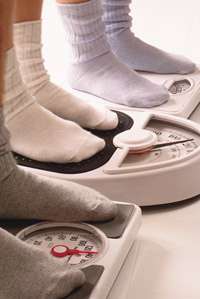
The dairy industry's new "Healthy Weight with Dairy" campaign launched on Oct. 21 with national advertising and local marketing efforts touting recent research that suggests dairy foods can be part of a healthy, weight-conscious diet. On Oct. 20, the Physicians Committee for Responsible Medicine (PCRM), a group that is linked with People for the Ethical Treatment of Animals (PETA), launched a pre-emptive, calling the campaign "dishonest."
Based on recent articles in leading medical journals suggesting a connection between dairy food and weight management, the campaign tells consumers that milk, cheese and yogurt may help in weight loss efforts when paired with a reduced-calorie, low-fat diet. Scientists are still studying why dairy is so important, but preliminary research suggests that calcium plays a role in the body's natural system for burning fat.
PCRM contends that the campaign ignores evidence that dairy foods can lead to weight gain.
Greg Miller, senior v.p. of nutrition and scientific affairs with the National Dairy Council, says the studies PCRM are focussing on were not designed to measure the relationship between weight and dairy.
"PCRM is doing what they always do which is to pick and choose what science to focus on and then blow it out in a distorted way," Miller said. "Clearly, overwhelmingly, those studies that did look specifically at the relationship to weight, show that there is a positive relationship." Miller says that even if one is to believe that dairy has no effect on weight management, dairy the industry is right to bring that message to consumers.
"Some studies with adolescent girls show no effect on weight. Even still, the idea that they can consume dairy and not gain weight show that the young girls who are cutting dairy out of their diet because they don't want to get fat, are doing the wrong thing."
Over the next six months, the Healthy Weight with Dairy campaign will communicate the research to consumers through a major print advertising initiative, national and regional public relations, and trade and health professional efforts. Additionally, a new consumer Web site, www.healthyweightwithdairy.com, includes more information on the research, helpful weight loss tips, recipes that include dairy, and links to other wellness sites.
Milk processors, through MilkPEP, are reallocating more than $5 million this year to support the campaign.
This effort touts the results of "Calcium Weighs In," a project that put the ideas behind "Healthy Weight with Dairy" into action. The 16-week program, which was conducted in the town of Calcium in upstate New York, taught participants how to make better food and lifestyle choices overall, including eating at least three servings of milk, cheese and yogurt each day, cutting excess calories, and increasing their daily physical activity. The program resulted in participants losing about a pound each week.
"One of the things I learned through the program is that dietary calcium is very important for weight loss and weight maintenance," said a participant in the program. "In the past I've eliminated dairy when trying to lose weight and I wasn't very successful. This time I lost nearly 40 pounds and I feel great."
The industry says the Calcium, NY program put the recent research to a real world test.
"We're excited by what happened in this town," said James Hill, Ph.D., director of the Center for Human Nutrition at the University of Colorado, who developed and oversaw the intervention program. "My earlier research on fat oxidation indicates that calcium may help turn up your body's fat-burning ability. So it follows that adding calcium rich dairy to your diet program may help you lose more weight."